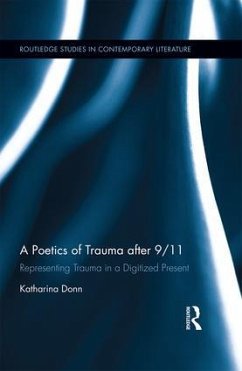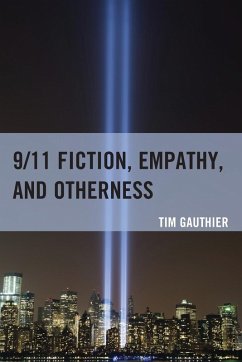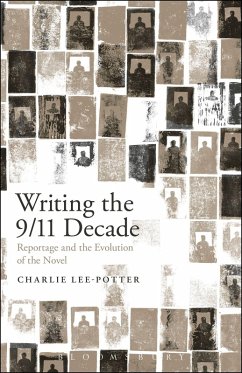
A Poetics of Trauma after 9/11
Representing Trauma in a Digitized Present
Versandkostenfrei!
Versandfertig in 1-2 Wochen
55,99 €
inkl. MwSt.
Weitere Ausgaben:

PAYBACK Punkte
28 °P sammeln!
The 9/11 attacks brought large-scale violence into the 21st century with force and have come to epitomize the entanglement of intimate vulnerability and virtual spectacle that is typical of the globalized present. This book works at the intersection of trauma studies, affect theory, and literary studies to offer radically new interpretive frames for interrogating the challenges inherent in representing the initial moments of the terrorist encounter. Beyond the paradigm of traumatic unspeakability, post-9/11 texts expose the materiality of the human body in its universal vulnerability. The inte...
The 9/11 attacks brought large-scale violence into the 21st century with force and have come to epitomize the entanglement of intimate vulnerability and virtual spectacle that is typical of the globalized present. This book works at the intersection of trauma studies, affect theory, and literary studies to offer radically new interpretive frames for interrogating the challenges inherent in representing the initial moments of the terrorist encounter. Beyond the paradigm of traumatic unspeakability, post-9/11 texts expose the materiality of the human body in its universal vulnerability. The intersubjective empathy this engenders is politically subversive, as it undermines the discourse of historical singularity and exceptionalism by establishing a global network of reference and dialogue. Innovative theoretical interconnections between clinical pathology, concepts of cultural trauma, and political aesthetics lay the foundations for exploring formally and geographically diverse texts. Close readings of works by Jonathan Safran Foer, Art Spiegelman, Don DeLillo, and William Gibson map the relationship between representations of 9/11 and complex aspects of trauma theory. This detailed approach makes a case for revisiting trauma theory and bringing its Freudian origins into the digitized present. It showcases trauma as a physical and psychological wound as well as an experience that is simultaneously pre-discursive and inhibited by the virtuality of the present-day real. Exploring how contemporary trauma studies can take into account the digitization and virtuality of present-day realities, this book is a key intervention in establishing a contemporary ethics of witnessing terror.














